Filter resources by type or complexity
All AdvancedArticleBeginnerIntermediateReportResearch PaperVideoWhite Paper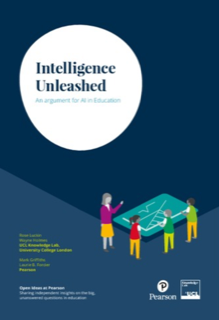
Intelligence Unleashed – An argument for education
This research paper gives arguments for how AI can benefit our education system. It argues that AI can support teachers in giving children the best education whilst not taking away from the humanity of it. AI can be beneficial in aspects such as online tutoring, collaborative learning, and tackling achievement gaps. While it does not […]
Read More
Software that monitors students during tests perpetuates inequality and violates their privacy
In an opinion piece by a University Librarian, he claims that millions of algorithmically proctored (invigilated) tests are happening every month around the world, increasing exponentially during the pandemic. In his experience algorithmic ‘proctoring’ reinforces white supremacy, sexism, ableism, and transphobia, invades students’ privacy and is often a civil rights violation.
Read More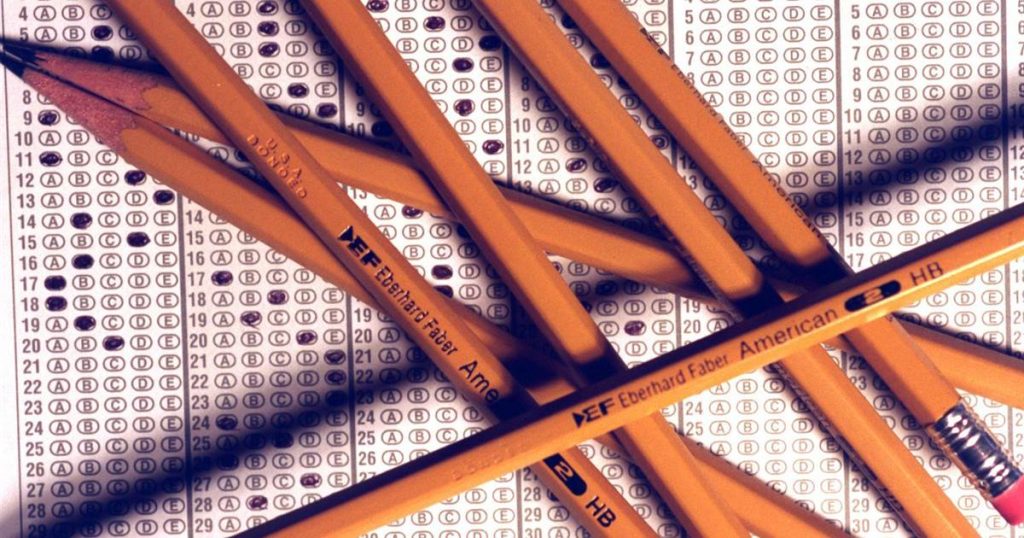
Remote testing monitored by AI is failing the students forced to undergo it
An opinion piece in which examples are given of students who have been highly disadvantaged by exam software, including a muslim woman forced to remove her hijab by software, in order to prove she is not hiding anything behind it.
Read More
Exams that use facial recognition may be ‘fair’ – but they’re also intrusive
News article which argues that whilst AI facial recognition during exams might be fair, it is both an invasion of privacy and is at risk of bringing unwarranted biases.
Read More
Beyond gadgets: EdTech to help close the attainment gap
A video overview of a report advocating for the use of edtech, or education technology, which includes many AI solutions, in order to close the “Opportunity Gap” between marginalised and “mainstream” pupils.
Read More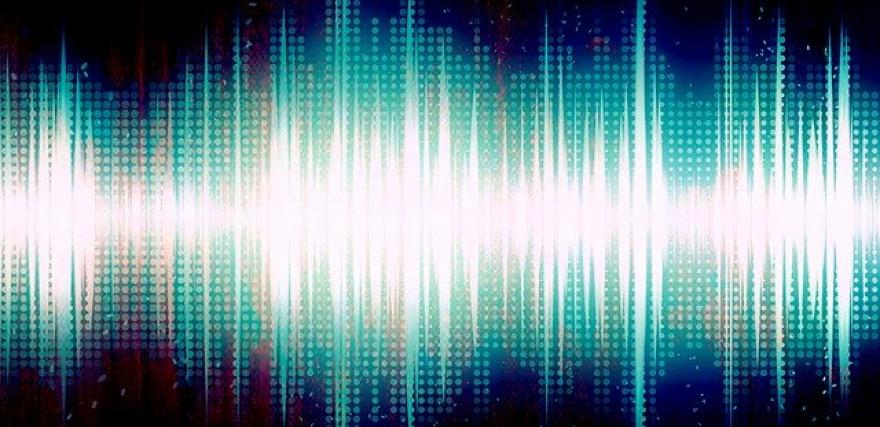
Speech recognition in education: The powers and perils
Weighing up the huge potential of voice recognition technology to gain insights into children’s language and reading development, against a difference of 16% in misidentified words between white and black voices.
Read More
AI teachers may be the solution to our education crisis
This article looks at the global shortage of teachers and how AI might be used to supplement and provide lacking education, and argues that it could be less biased than teachers, thereby resolving inequity.
Read More
Can computers ever replace the classroom?
This article considers the various ways AI can be used during the pandemic to boost virtual learning, focusing on Chinese company Squirrel AI who are reporting good results with computer tutors and personalised learning, and weighing up the risks, such as surveillance of Muslim Uighurs in Xinjiang.
Read More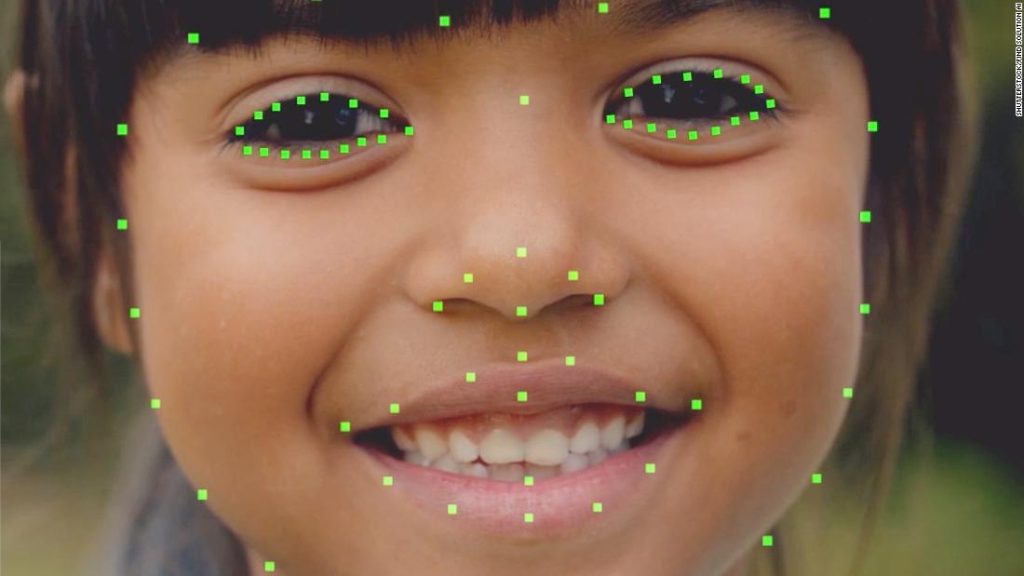
In Hong Kong, this AI Reads children’s emotions as they learn…
Facial recognition AI, combined with other AI assessment, is used to spot how children are performing and boost their performance. However, there is concern that it may not work so well for students with non-Chinese ethnicities who were not part of the training data.
Read More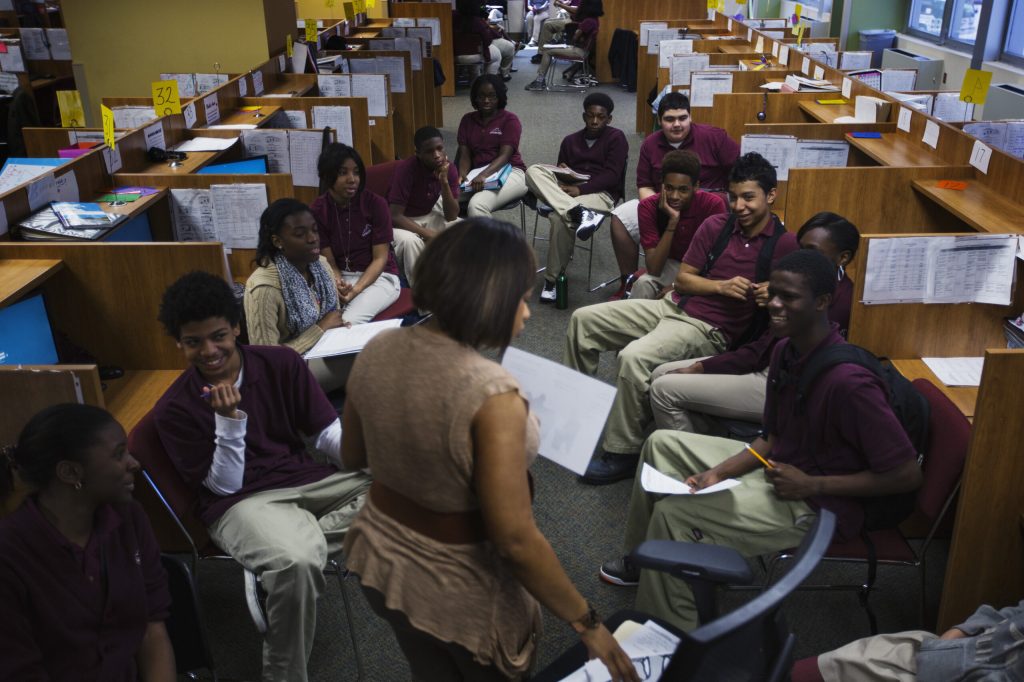
AI is coming to schools, and if we are not careful, so will it’s biases
This article looks at what issues may arise for children from minority and underprivileged communities from replacing teachers with AI.
Read More
Flawed Algorithms are Grading Millions of Students Essays
Automated essay grading in the US has been shown to mark down African American students and those from other countries.
Read More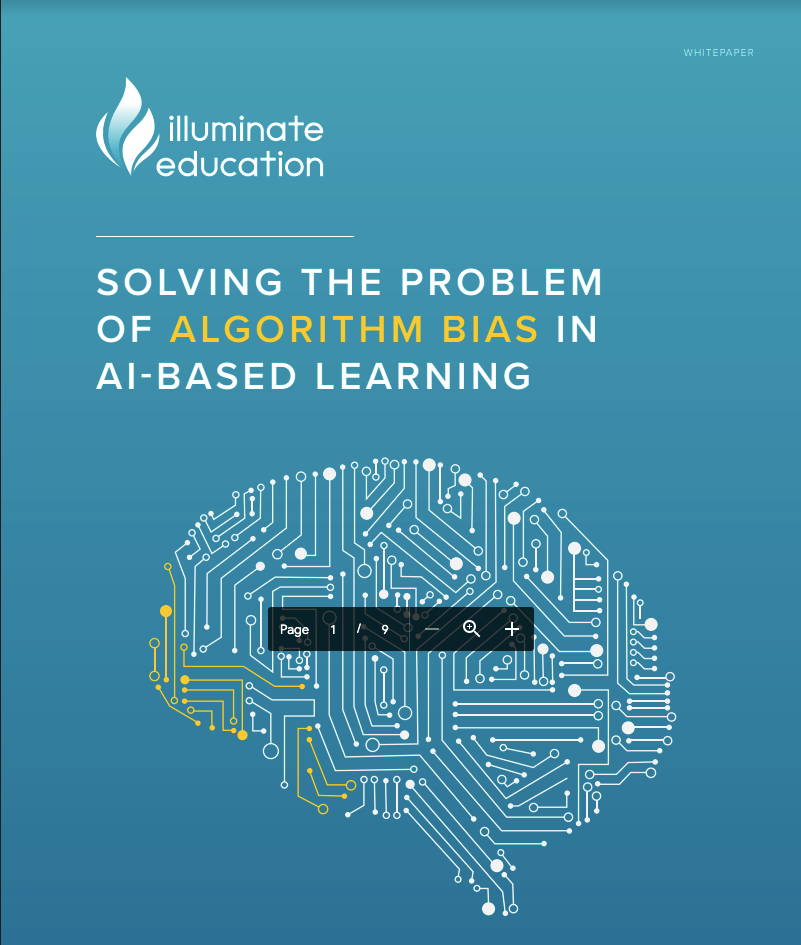
Solving The Problem Of Algorithm Bias In AI-Based Learning
This white paper takes a deeper dive into the data and algorithm used to underestimate the pass rate of students of certain nationalities, looking at how data and modelling can lead to bias.
Read More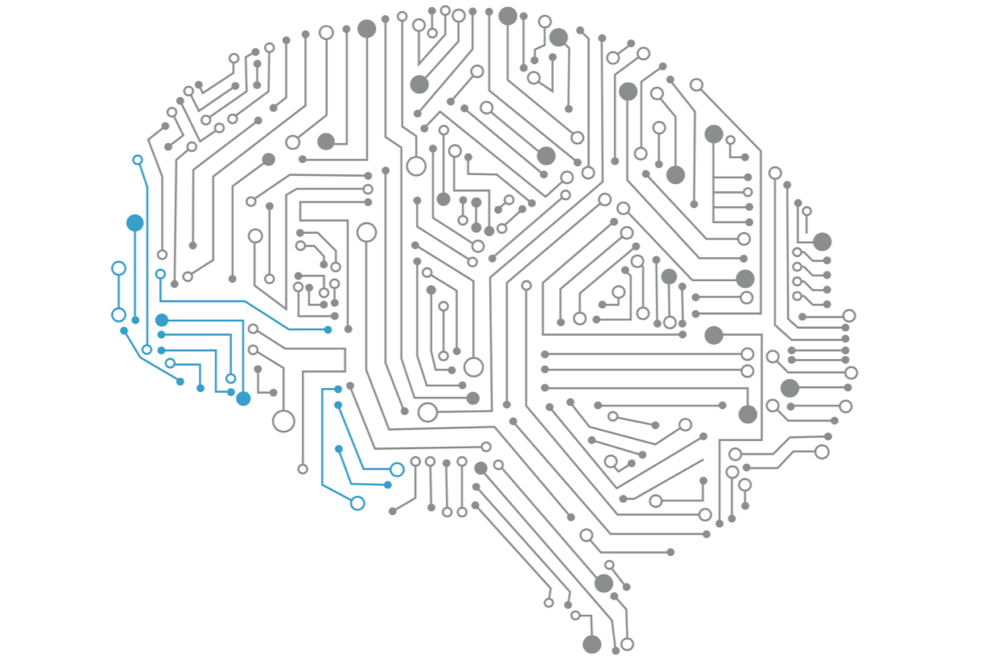
Student Predictions & Protections: Algorithm Bias in AI-Based Learning
This short article gives an example of how predictive algorithms can penalise underrepresented groups of people. In this example, students from Guam had their pass rate underestimated versus other nationalities, because of the low number of students in the data set used to build the prediction model, resulting in insufficient accuracy.
Read More
Inbuilt biases and the problem of algorithms
This article details the algorithm used to inform A Level results for students who could not take exams due to the 2020 pandemic. The algorithm took into account the postcode of the student, which meant that students from lower income areas were more likely to have their grade reduced whilst students in high-income areas were […]
Read More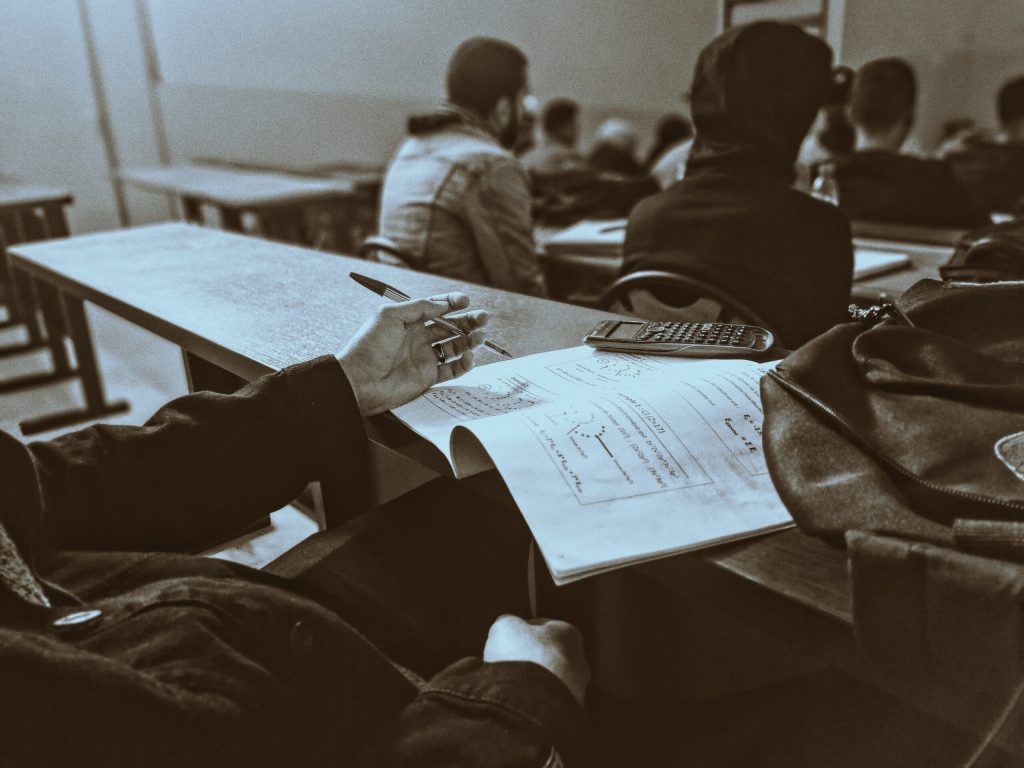
Algorithms can drive inequality. Just look at Britain’s school exam chaos
An outcry over alleged algorithmic bias against pupils from more disadvantaged backgrounds has now left teenagers and experts alike calling for greater scrutiny of the technology.
Read More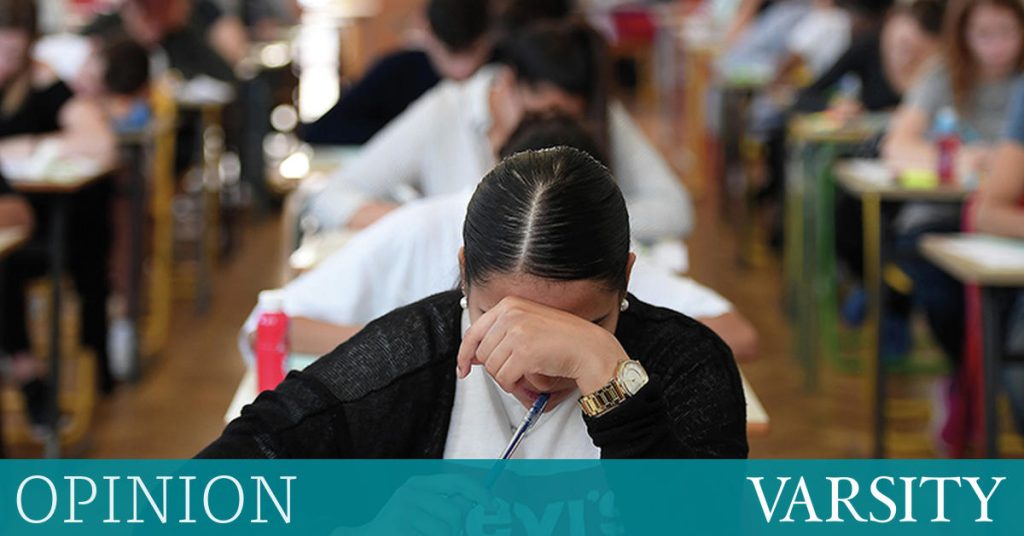
Postcode or performance: How the A Level results of 2020 exposed a broken system
Case study explaining algorithm bias inherent in grade prediction for A Level students. Demonstrates the physical impact AI can have, if not scrutinised for bias.
Read More
The problem with algorithms: magnifying misbehaviour
This news example gives an example of bias present in an algorithm governing the first round of admissions into a medical university. The data used to define the algorithms output showed bias against both females and people with non-European-looking names.
Read More
How will artificial intelligence change admissions?
An article detailing how AI might change admissions in terms of the process, the consequences and how students from some countries could be at risk of bias.
Read More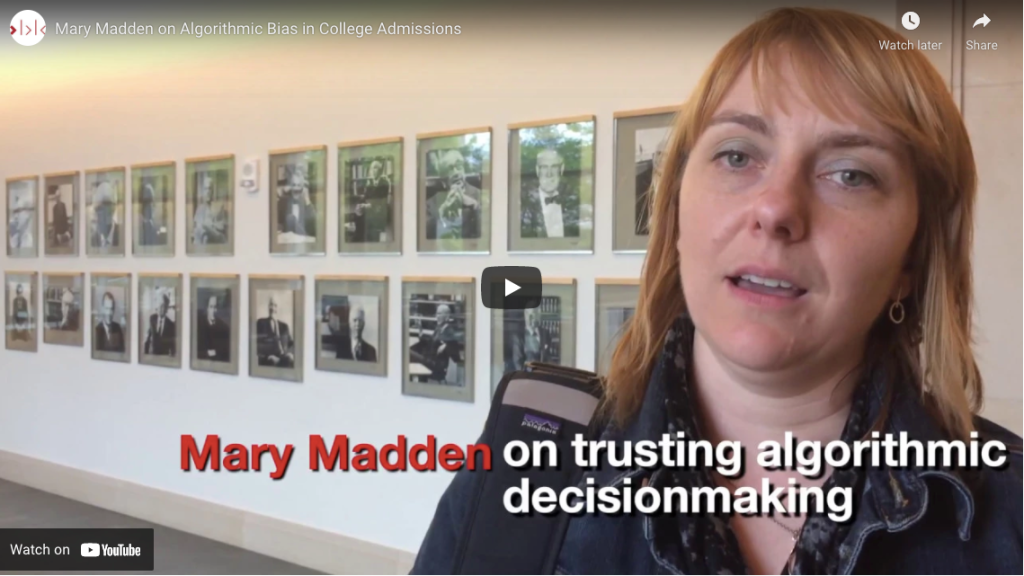
Mary Madden on Algorithmic Bias in College Admissions
A good introductory video to the use of AI in college admissions. Questioning at what point it is acceptable to completely remove the human oversight in admissions.
Read More
Using AI in the examination process
Technology to protect remote exam taking against fraud has quickly become necessary as exams move online. Combinations of machine learning algorithms, facial recognition technology and eye tracking software are used to make sure that the person taking the exam is who they say they are and identify cheating.
Read More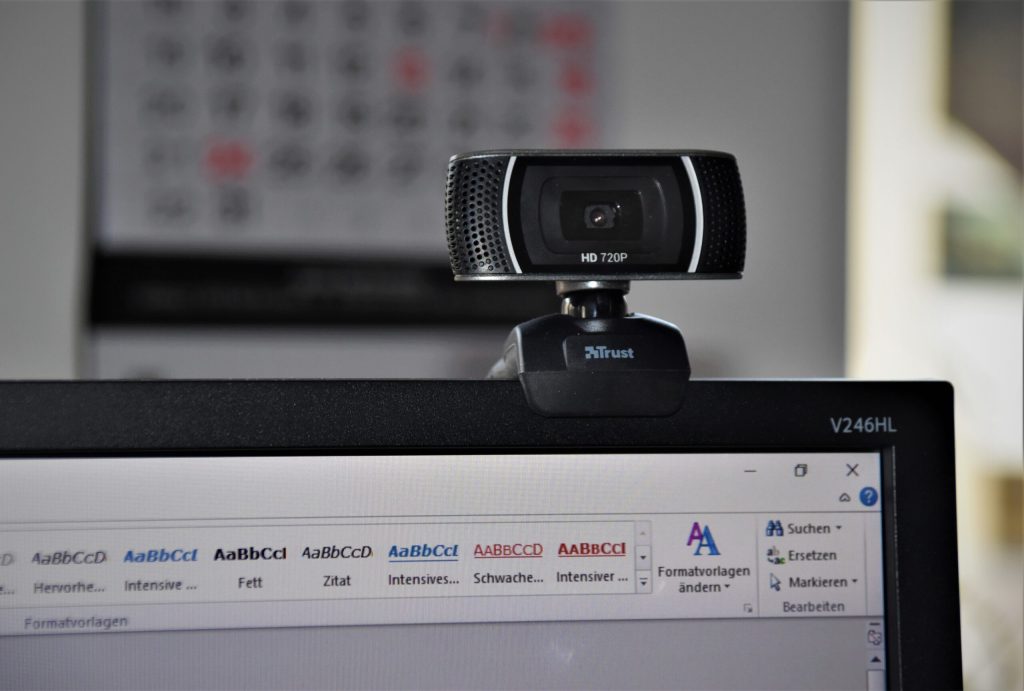
How AI applications are used to aid learning
There are many types of different exciting AI applications being used to enhance learning in the class room, from automated ‘smart tutors’ who can assess pupil performance more accurately tailor learning interventions than humans, to facial recognition cameras which can assess pupils’ understanding through analysing their facial expressions.
Read More
Using AI systems in school admissions
A range of different ways to make decisions about admissions to universities and schools are being used, including algorithms which use data pulled from students social media channels. There is concern that the data used will be biased against ethnic minorities due to the smaller amounts of data available and human bias used in creating the models.
Read More
Using algorithms to predict and award grades and exam results
In 2020 the use of algorithms to replace exams to determine results hit the headlines when it was shown that they penalised students from state schools and low inclome postcodes.
Read More